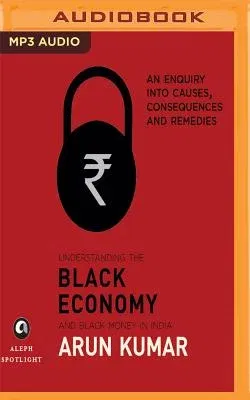The Narendra Modi government's sudden demonetization of '500 and '1,000
notes in November 2016 failed to put a dent in the black economy but
caused untold hardship to hundreds of millions of Indians. It has
crippled the country's economy for a long time to come. In this book,
Arun Kumar, the country's leading authority on the black economy, tells
us why Modi's gambit failed. He shows us the way in which the problem
can be rooted out, provided the government has the political will and
determination to act.
Today, the black economy is estimated to be 62 percent of GDP - or about
'93 lakh crore ($1.4 trillion). Corrupt businessmen, corrupt politicians
and corrupt members of the executive (bureaucrats, police and the
judiciary) are responsible for controlling the black economy and
enabling its growth. If the black economy were to be dismantled and
turned into a part of the 'white' economy, the country's rate of growth
would be 12 percent. If it had not grown the way it has since the 1970s,
India's per capita income today would be approximately '7 lakh per annum
($11,000), and India would become the second largest economy in the
world. If the black economy were taxed at current rates, it would
generate '37 lakh crore in additional taxes, and the union budget would
show a surplus of '31 lakh crore instead of a deficit.
The failure of successive governments to tackle the problem effectively
has been the single biggest obstacle to eradicating poverty. It is the
cause of both widespread policy failure and the inability of the nation
to improve its living conditions rapidly.

